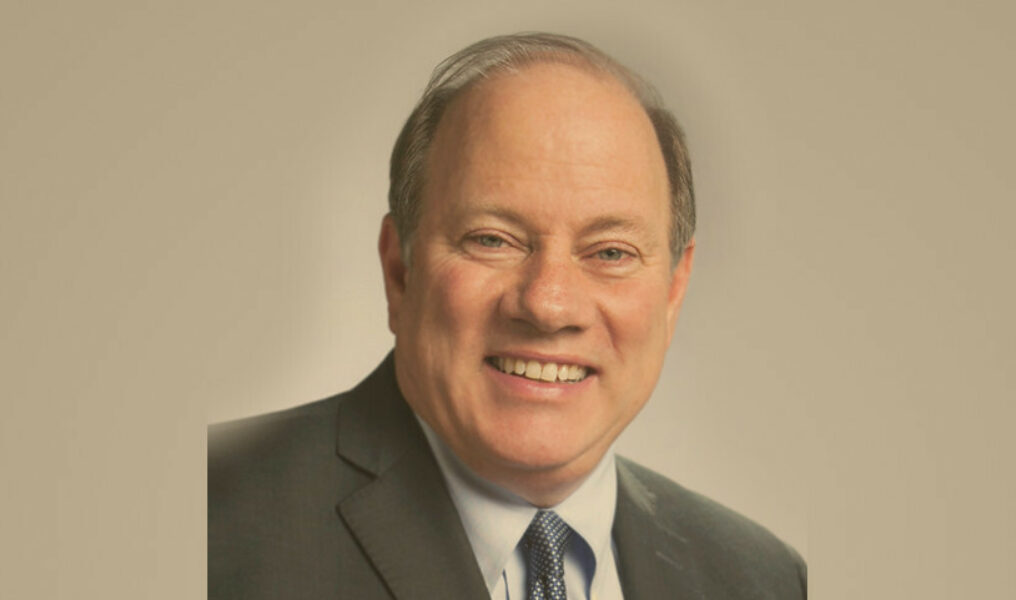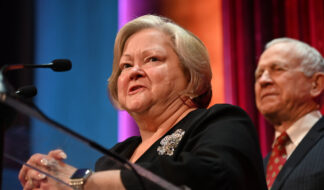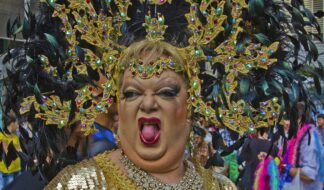Michigan Mayors Against LGBT Discrimination Series
As BTL continues the Mayors Against LGBT Discrimination series, we hear from Mike Duggan, who was elected Mayor of the City of Detroit on Nov. 5, 2013, and re-elected to a second term on Nov. 7, 2017. Duggan, born in Detroit, has spent his entire career working in the city to solve some of the most complex issues facing Detroiters, including crime, blight and access to jobs.
Duggan has announced his commitment to making sure Detroit is a safe space where everyone is welcome. This was indicated last year in June when the city of Detroit for the first time raised the rainbow flag at Hart Plaza in honor of LGBTQ Pride Month. The flag, a symbol of LGBTQ rights, will continue to fly throughout the month of June.
Mayors Against LGBT Discrimination is a bipartisan coalition of municipal leaders dedicated to securing inclusive non-discrimination protections for all, including lesbian, gay, bisexual and transgender individuals, at all levels of government. It is a program of Freedom for All Americans, the bipartisan campaign to win comprehensive LGBT non-discrimination protections nationwide. Since its inception, membership in Mayors Against LGBT Discrimination has grown to 307 mayors in 48 states and the District of Columbia, including 19 mayors in Michigan.
Why did you join Mayors Against LGBT Discrimination?
I wanted to make a strong statement that recognizes discrimination against members of the LGBTQ community does exist and that Detroit is a city where they are welcomed.
How does your city promote fairness, diversity and inclusion, and why is that important?
My administration has a commitment to fairness and diversity that's been recognized nationally by the Human Rights Campaign's Municipal Equality Index, in which Detroit scored 100 percent for the third year in a row in 2017. We have top-level administrators who are openly LGBT, and Detroit was one of the first cities in the country, back in the 1970s, to enact an ordinance prohibiting discrimination against gay people in housing, employment and public accommodations – later amended to include transgender people, as well. By executive order, I have made it official city policy that all employees are entitled to a workplace free from discrimination, with violations quickly investigated and addressed. Companies that receive contracts through the city also are required to follow the city's nondiscrimination ordinance.
All city appointees, managers and supervisors must attend classes on the City of Detroit's nondiscrimination policy. This commitment extends to our police department, where there is an active LGBT advisory board and Officer Dani Woods is a well-regarded liaison between Police Chief James Craig and the LGBTQ community. The department has also instituted mandatory sensitivity training for officers.
As mayor, what role do you play in challenging discrimination, and making your city more inclusive?
I've made it clear publicly that Detroit is a welcoming city for all, whether that means people who live or want to live here, or those who want to establish or grow a business here. Programs started by my administration including Motor City Match, which promotes entrepreneurship in the city, have helped LGBT-owned businesses to locate or expand in Detroit.
How do you ensure that your city's objectives are consistently reflected in the actions of municipal employees?
The city's Department of Civil Rights, Inclusion and Opportunity is empowered to investigate incidents of discrimination. I've convened meetings with top LGBT leaders to address their concerns and will continue to seek their input and counsel.
Where does your city need to improve?
We can always do a better job of making it clear in public ways that Detroit is an LGBTQ-friendly city. And while we are thrilled that Detroit scores so well nationally as an LGBTQ-welcoming place, there are areas where we can improve the services offered, including assistance for homeless youth and LGBTQ seniors.
What is your vision for your city 10 years from now, in terms of being a welcoming place to live, work, and operate a business?
My vision is that Detroit will be a city with a growing population, which includes a growing LGBTQ community. Until Michigan's Elliott-Larsen Civil Rights Act is amended to include protections for LBGTQ people, Detroit will continue to stand as an example of how antidiscrimination policies help attract people and encourage growth, because people want to live, work and play in places where everyone is respected and valued.
Stay connected to the city of Detroit online at detroitmi.gov. Follow Mike Duggan on Facebook at facebook.com/MayorMikeDuggan/.











